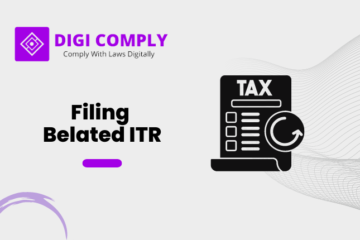In today’s globalized economy, multinational corporations often engage in transactions with their affiliated entities located in different countries. These transactions involve the transfer of goods, services, or intellectual property between related parties. The concept of transfer pricing plays a critical role in these transactions, as it entails determining the appropriate prices for these intercompany transfers. This article aims to provide a comprehensive guide to the concept of transfer pricing and its implications for multinational corporations operating in the United Arab Emirates (UAE). We will explore the guidelines and regulations established by the UAE tax authorities in order to help companies ensure compliance and optimize their operations in the UAE market.
Understanding Transfer Pricing:
Transfer pricing refers to the pricing of goods, services, or intellectual property transferred between related entities within a multinational corporation. The primary goal of transfer pricing is to ensure that transactions between related parties are conducted at arm’s length, meaning the prices and terms of the transactions are similar to those that would have been agreed upon between unrelated parties in similar circumstances. By adhering to the arm’s length principle, multinational corporations aim to allocate profits and taxes in a fair and transparent manner, avoiding potential tax avoidance or profit-shifting practices.
Implications for Multinational Corporations in the UAE:
For multinational corporations operating in the UAE, compliance with transfer pricing rules is crucial to ensure adherence to the country’s tax laws and regulations. Non-compliance can lead to tax adjustments, penalties, and potential reputational risks. Adhering to transfer pricing regulations is not only legally mandated but also helps multinational corporations build and maintain a healthy relationship with tax authorities. Properly applying and documenting transfer pricing policies can accurately reflect the company’s profitability in the UAE market, contributing to transparent financial reporting and good corporate governance.
Guidelines and Regulations in the UAE:
The UAE tax authorities have established comprehensive guidelines and regulations for transfer pricing, in alignment with international best practices. These guidelines aim to prevent tax avoidance and ensure fairness in determining taxable profits. Here are some key considerations for multinational corporations operating in the UAE:
Arm’s Length Principle:
The UAE tax authorities, in line with international standards, follow the arm’s length principle. This principle requires that the pricing of transactions between related entities should be comparable to those between unrelated parties. Multinational corporations must demonstrate that their intercompany transactions are priced in accordance with prevailing market conditions, ensuring a fair allocation of profits and taxes.
Documentation Requirements:
Multinational corporations operating in the UAE are required to maintain comprehensive transfer pricing documentation. This documentation includes extensive information about intercompany transactions, such as financial details, business strategies, functional analysis, and market data. The documentation must demonstrate that the transactions are conducted at arm’s length and should be supported by contemporaneous data and appropriate analysis. Having robust documentation is essential for substantiating transfer pricing policies and defending against potential transfer pricing audits.
Transfer Pricing Methods:
Multinational corporations have the flexibility to choose from various transfer pricing methods to determine appropriate prices for their intercompany transactions. The UAE tax authorities accept internationally recognized transfer pricing methods, including the Comparable Uncontrolled Price Method (CUP), the Resale Price Method (RPM), the Cost Plus Method (CPM), and the Transactional Net Margin Method (TNMM). The choice of method should be based on the nature of the transactions and the availability of reliable comparables.
Advance Pricing Agreements (APAs):
Multinational corporations have the option to enter into Advance Pricing Agreements (APAs) with the UAE tax authorities. APAs are formal agreements between the taxpayer and the tax authorities that provide certainty on the transfer pricing methodology and pricing for future intercompany transactions. APAs can help minimize transfer pricing disputes, avoid double taxation, and provide a clear framework for multinational corporations to comply with tax regulations. APAs offer benefits such as reducing compliance costs, mitigating transfer pricing risk, and enhancing tax planning efficiency.
Transfer Pricing Audits:
The UAE tax authorities perform transfer pricing audits to ensure compliance with the transfer pricing regulations. These audits may involve a review of the transfer pricing documentation, conducting functional interviews, and assessing the arm’s length nature of the transactions. In case any discrepancies or non-compliance are identified, the tax authorities may make transfer pricing adjustments, potentially leading to additional tax assessments, penalties, and potential reputational risks.
Frequently asked questions (FAQs)
- What is transfer pricing?
Transfer pricing refers to the pricing of goods, services, or intellectual property transferred within related entities, such as subsidiaries of the same multinational company. It involves determining the appropriate price for such transactions to ensure that they are consistent with arm’s length principles. - Why is transfer pricing important in the UAE?
Transfer pricing is important in the UAE to prevent tax evasion and ensure that companies are conducting business internationally in a fair and transparent manner. It helps to avoid the shifting of profits to low-tax jurisdictions and ensures that each related entity is taxed appropriately based on their actual contributions and risks. - Who is responsible for transfer pricing compliance in the UAE?
In the UAE, the Federal Tax Authority (FTA) is responsible for transfer pricing compliance. They regulate and enforce transfer pricing rules to ensure that transactions between related entities are priced correctly for tax purposes. - What are the transfer pricing methods used in the UAE?
The UAE generally accepts the most commonly used transfer pricing methods, such as the Comparable Uncontrolled Price method, Resale Price method, Cost Plus method, Profit Split method, and the Transactional Net Margin method. The appropriate method will depend on the specific facts and circumstances of the transactions being analyzed. - Are there specific documentation requirements for transfer pricing in the UAE?
Yes, the UAE requires companies to maintain transfer pricing documentation to demonstrate that their related party transactions are conducted on an arm’s length basis. The documentation should include a local file, a master file, and a country-by-country report, which are required under the Base Erosion and Profit Shifting (BEPS) framework. - What are the consequences of non-compliance with transfer pricing rules in the UAE?
Failure to comply with transfer pricing rules in the UAE can result in penalties, including financial penalties, interest charges, and potential adjustments to taxable income. Non-compliant entities may also face reputational risks and increased scrutiny from tax authorities. - Can companies in the UAE request an advance pricing agreement (APA)?
Yes, companies in the UAE can request an advance pricing agreement (APA) from the FTA. An APA is a mutual agreement between the taxpayer and the tax authorities on the transfer pricing methodology to be used for specific transactions over a set period of time. APAs provide certainty and reduce the risk of transfer pricing disputes.
Conclusion:
Transfer pricing is a critical consideration for multinational corporations operating in the UAE to effectively manage tax liabilities, optimize operations, and maintain a favorable relationship with tax authorities. By adhering to transfer pricing regulations, multinational corporations demonstrate their commitment to transparent financial reporting, good corporate governance, and ethical business practices. Considering the arm’s length principle, maintaining comprehensive transfer pricing documentation, selecting appropriate transfer pricing methods, and utilizing APAs are fundamental steps for complying with UAE tax laws. Staying up-to-date with the guidelines and regulations established by the UAE tax authorities is vital for multinational corporations to successfully navigate transfer pricing requirements and optimize their operations in the UAE market. By ensuring compliance, multinational corporations can position themselves for sustainable growth and long-term success in the UAE.
If You have any queries then connect with us at support@legalsuvidha.com or info@digicomply.in & contact us & stay updated with our latest blogs & articles





